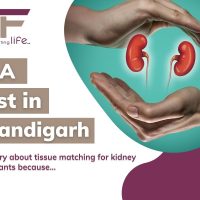Lifestyle Changes for Managing Diabetes: Diabetes is a chronic disease that affects millions of people worldwide. While medication can help manage diabetes, lifestyle changes can play a crucial role in managing the condition. In this article, we will explore how adopting healthy habits such as a balanced diet, regular physical activity, stress management, adequate sleep, and quitting smoking can help control diabetes.
“Diabetes may be control by changing lifestyle “
CContents
Healthy Diet
Adopting a healthy diet is one of the most important lifestyle changes a person with diabetes can make. This means consuming a balanced diet that is low in sugar and saturated fats and high in fiber, whole grains, and lean proteins. Eating a healthy diet can help regulate blood sugar levels and reduce the risk of complications associated with diabetes.
Regular Physical Activity
Regular physical activity can help lower blood sugar levels and improve insulin sensitivity. Even small amounts of physical activity, such as taking a short walk after a meal, can have a significant impact on blood sugar levels. The American Diabetes Association recommends that individuals with diabetes engage in at least 150 minutes of moderate-intensity exercise per week.
Stress Management
Stress can cause blood sugar levels to rise, so learning relaxation techniques such as deep breathing, meditation, or yoga can help keep blood sugar levels in check. Regular sleep is also important for diabetes management, as lack of sleep can disrupt the body’s ability to regulate blood sugar levels.
Quitting Smoking
Quitting smoking is another important lifestyle change for individuals with diabetes. Smoking can increase the risk of complications associated with diabetes, such as heart disease, stroke, and kidney damage. Quitting smoking can also improve overall health and reduce the risk of other chronic conditions, such as cancer and respiratory disease.
Health Benefits of Lifestyle Changes
Adopting healthy lifestyle habits can help individuals with diabetes improve their overall health, reduce the risk of complications associated with diabetes, and potentially save money on healthcare costs. By reducing reliance on medications and decreasing the frequency of doctor visits, individuals with diabetes can manage their condition in a cost-effective way.
Overcoming Barriers to Lifestyle Changes
Changing one’s lifestyle is not always easy, especially for individuals with diabetes who may face additional barriers to adopting healthy habits. To overcome these barriers, individuals with diabetes can work with their healthcare team to develop a personalized diabetes management plan that takes into account their unique needs and circumstances.
Conclusion
In conclusion, lifestyle changes can play a significant role in managing diabetes. By adopting healthy habits such as eating a balanced diet, engaging in regular physical activity, managing stress, getting adequate sleep, and quitting smoking, individuals with diabetes can improve their overall health, reduce the risk of complications associated with diabetes, and potentially save money on healthcare costs. While changing one’s lifestyle can be challenging, working with a healthcare team to develop a personalized diabetes management plan can help overcome barriers.











Comments